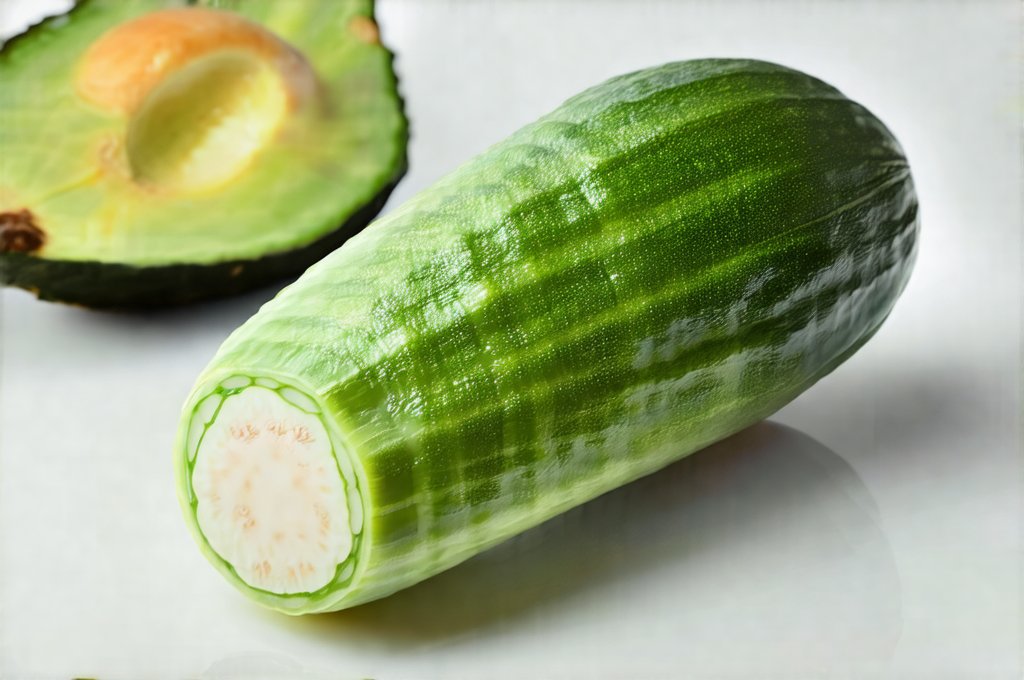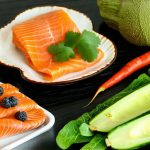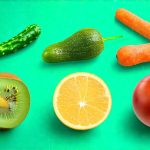Bloating is a common digestive complaint many people experience, often dismissed as an unavoidable part of life. However, for those following a vegan diet, bloating can sometimes be more prevalent or noticeable, leading to frustration and questioning dietary choices. It’s rarely about the diet itself being inherently problematic; rather, it’s frequently linked to how our bodies adapt – or fail to adapt – to significant shifts in food composition. A fully plant-based diet drastically increases fiber intake and introduces a wide variety of complex carbohydrates that require specific enzymes for efficient breakdown. When these enzymatic processes aren’t functioning optimally, undigested food ferments in the gut, producing gas and leading to uncomfortable bloating symptoms.
The key isn’t necessarily eliminating vegan foods, but understanding why bloating occurs within this dietary framework and exploring potential strategies to improve digestive comfort. This often involves recognizing that enzyme deficiencies, whether pre-existing or induced by dietary changes, can play a substantial role. It’s vital to approach this topic with nuance – acknowledging the immense health benefits of plant-based eating while also addressing individual digestive needs. Focusing on personalized solutions and mindful consumption is far more effective than simply labeling veganism as “bloating-inducing”. The following exploration delves into the intricacies of enzyme deficiencies, their impact on vegan diets, and potential avenues for support and mitigation.
Understanding Enzyme Deficiencies & Vegan Diets
Enzyme deficiencies aren’t always a matter of complete absence; often they represent reduced functionality or insufficient quantities to effectively process certain food components. Our bodies naturally produce enzymes, but production can be influenced by genetics, age, stress levels, and dietary habits. A vegan diet introduces an abundance of phytates, lectins, and complex carbohydrates – compounds that some individuals may struggle to digest efficiently without adequate enzyme support. These plant-based compounds are generally beneficial for health, offering antioxidants and other vital nutrients, but they can also contribute to bloating if not properly broken down. For example, legumes (beans, lentils) contain oligosaccharides, sugars that the human body lacks the enzymes to fully digest, often leading to gas production. Similarly, cruciferous vegetables like broccoli and cabbage contain raffinose, another difficult-to-digest sugar.
The transition to a vegan diet can sometimes exacerbate existing mild enzyme deficiencies or even create new ones due to the sudden increase in these specific compounds. When we consume foods our bodies aren’t equipped to handle effectively, it puts extra strain on the digestive system, and undigested food becomes fuel for gut bacteria – a process that inevitably leads to gas production. It’s important to note that this isn’t an inherent flaw of veganism but rather a biological response to dietary change. The body needs time to adapt, and in some cases, it may require additional support through targeted enzyme supplementation or strategic food preparation methods. Recognizing the potential for enzymatic challenges is crucial for maintaining digestive comfort on a plant-based diet.
Many individuals transition to veganism hoping to improve their health, but fail to consider that gut health—and specifically, digestive enzymes—is foundational to overall well-being. A compromised digestive system can’t effectively absorb nutrients, even from the most nutritious foods. Therefore, addressing potential enzyme deficiencies is not just about reducing bloating; it’s about maximizing the benefits of a vegan lifestyle and ensuring optimal nutrient absorption. The focus should be on creating a symbiotic relationship between diet and digestion. Understanding the role of fiber in managing bloating can also help navigate dietary adjustments.
Common Enzyme Deficiencies Affecting Vegan Digestion
Several key enzymes are frequently implicated in digestive discomfort among those following a plant-based diet. Alpha-galactosidase is crucial for breaking down oligosaccharides found in legumes, beans, lentils, and cruciferous vegetables. Deficiency leads to increased gas and bloating after consuming these foods. Another important enzyme is amylase, responsible for digesting starches. While most people produce sufficient amylase, some may experience reduced activity, particularly with the higher starch content often present in vegan diets (potatoes, rice, corn). This can result in undigested starch fermenting in the gut.
Furthermore, lactase deficiency is well-known, but even those not traditionally lactose intolerant might find their bodies struggle more with certain plant-based “milk” alternatives containing complex sugars that require lactase-like enzymes for breakdown. Finally, sucrase and maltase deficiencies, although less common, can contribute to bloating from fruits and grains. It’s important to understand that these aren’t necessarily all-or-nothing situations; individuals may have varying degrees of enzyme production capacity. Identifying which enzymes are lacking or insufficient is the first step towards targeted support. Sometimes intestinal pressure in chronic heartburn can mimic bloating symptoms, so it’s important to differentiate.
- Testing: While comprehensive digestive enzyme testing isn’t always readily available, functional medicine practitioners can sometimes offer specialized assessments.
- Elimination Diet & Reintroduction: Carefully eliminating and reintroducing food groups while monitoring symptoms can help pinpoint problematic foods and suggest potential enzyme deficiencies.
- Symptom Tracking: Keeping a detailed food diary alongside symptom tracking (bloating, gas, discomfort) is invaluable for identifying patterns and correlations between diet and digestive issues. Proper hydration in preventing bloating also aids digestion.
Strategies to Support Enzyme Function Naturally
Beyond supplementation, there are several lifestyle and dietary strategies that can naturally enhance enzyme production and improve digestion. Chewing food thoroughly is paramount – the digestive process begins in the mouth with salivary amylase breaking down starches. Eating slowly and mindfully allows for proper mechanical breakdown of food, reducing the burden on the intestines. Incorporating fermented foods like sauerkraut, kimchi, or kombucha introduces beneficial bacteria (probiotics) that aid digestion and may even enhance enzyme production within the gut microbiome.
Another effective approach is food combining. While controversial in some circles, strategically pairing foods can ease digestive stress. For instance, avoiding large amounts of fruit with meals high in protein or fat can reduce fermentation. Soaking legumes overnight before cooking helps to break down oligosaccharides and improve digestibility. Additionally, sprouting grains and seeds increases enzyme activity and nutrient availability. Stress management is also crucial—chronic stress negatively impacts digestion and enzyme production. Techniques like yoga, meditation, or deep breathing exercises can help regulate the digestive system and promote optimal function.
Finally, consider incorporating spices known to aid digestion, such as ginger, turmeric, and cumin. These spices not only add flavor but also contain compounds that stimulate enzyme secretion and reduce inflammation. Remember that consistency is key—these strategies are most effective when integrated into a long-term lifestyle approach rather than implemented sporadically. A diet rich in bitter foods in digestive balance can also support enzyme production.
Supplementation: A Targeted Approach
When dietary and lifestyle modifications aren’t enough, enzyme supplementation can be a valuable tool for managing bloating on a vegan diet. It’s crucial to choose high-quality supplements from reputable brands and consult with a healthcare professional before starting any new supplement regimen. Supplements typically contain combinations of enzymes tailored to specific digestive needs. For example, an alpha-galactosidase supplement (like Beano) can significantly reduce gas production from legumes.
A broad-spectrum digestive enzyme blend containing amylase, protease (for protein digestion), lipase (for fat digestion), and cellulase (for breaking down plant fiber) may be beneficial for overall digestive support. It’s important to take enzymes with meals rather than on an empty stomach, allowing them to work directly on the food being digested. Timing is critical—taking enzymes before or between meals won’t yield the same results. Consider the role of FODMAPs in bloating and gas to refine dietary choices alongside supplementation.
- Dosage: Follow product instructions carefully and start with a low dose, gradually increasing as needed.
- Formulation: Consider different formulations – capsules, tablets, liquids – based on personal preference and absorption rate.
- Individual Needs: The best enzyme supplement will depend on individual digestive challenges and dietary patterns.
It’s important to reiterate that supplementation shouldn’t be seen as a quick fix but rather as a supportive measure alongside mindful eating habits and lifestyle adjustments. Addressing the root cause of digestive discomfort—often related to insufficient enzyme production or inadequate food preparation techniques—is essential for long-term health and well-being.


















